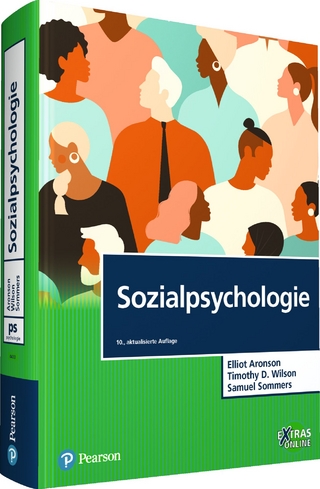
Understanding Group Behavior
Psychology Press (Verlag)
978-0-8058-1642-6 (ISBN)
These books grew out of the perception that a number of important conceptual and theoretical advances in research on small group behavior had developed in recent years, but were scattered in rather fragmentary fashion across a diverse literature. Thus, it seemed useful to encourage the formulation of summary accounts. A conference was held in Hamburg with the aim of not only encouraging such developments, but also encouraging the integration of theoretical approaches where possible. These two volumes are the result.
Current research on small groups falls roughly into two moderately broad categories, and this classification is reflected in the two books. Volume I addresses theoretical problems associated with the consensual action of task-oriented small groups, whereas Volume II focuses on interpersonal relations and social processes within such groups. The two volumes differ somewhat in that the conceptual work of Volume I tends to address rather strictly defined problems of consensual action, some approaches tending to the axiomatic, whereas the conceptual work described in Volume II is generally less formal and rather general in focus. However, both volumes represent current conceptual work in small group research and can claim to have achieved the original purpose of up-to-date conceptual summaries of progress on new theoretical work.
Erich H. Witte, James H. Davis
Volume 1.Contents: Preface. Part I: Introduction.J.H. Davis, Small-Group Research and the Steiner Questions: The Once and Future Thing. Part II: Social Aggregation and Combination Models.H.W. Crott, J. Werner, C. Hoffmann, A Probabilistic Model of Opinion Change Considering Distance Between Alternatives: An Application to Mock Jury Data. J.H. Davis, Group Decision Making and Quantitative Judgments: A Consensus Model. P.R. Laughlin, Group Decision Making and Collective Induction. R.S. Tindale, C.M. Smith, L.S. Thomas, J. Filkins, S. Sheffey, Shared Representations and Asymmetric Social Influence Processes in Small Groups. N.L. Kerr, R.J. MacCoun, G.P. Kramer, "When are N Heads Better (or Worse) Than One?": Biased Judgment in Individuals Versus Groups. T. Kameda, Procedural Influence in Consensus Formation: Evaluating Group Decision Making From a Social Choice Perspective. Part III: Social Information-Processing Models.G. Stasser, S.I. Vaughan, Models of Participation During Fact-to-Face Unstructured Discussion. B. Latané, Strength From Weakness: The Fate of Opinion Minorities in Spatially Distributed Groups. D. Gigone, R. Hastie, The Impact of Information on Group Judgment: A Model and Computer Simulation. E.H. Witte, The Extended Group Situation Theory (EGST): Explaining the Amount of Change. S. Galam, When Humans Interact Like Atoms. J.H. Davis, Concluding Remarks. Volume 2.Contents: Preface. Part I: Introduction.E.H. Witte, Small-Group Research and the Crisis of Social Psychology: An Introduction. Part IIGroup Structure and Composition.R.L. Moreland, J.M. Levine, M.L. Weingert, Creating the Ideal Group: Composition Effects at Work. W. Stroebe, M. Diehl, G. Abakoumkin, Social Compensation and the Köhler Effect: Toward a Theoretical Explanation of Motivation Gains in Group Productivity. H.A.M. Wilke, Status Congruence in Small Groups. J.C. Jesuino, Leadership: Micro-Macro Links. W. Scholl, Effective Teamwork -- A Theoretical Model and a Test in the Field. M. von Cranach, Toward a Theory of the Acting Group. Part III: Interpersonal Influence, Conflict, and Resolution.J.A. Pérez, G. Mugny, The Conflict Elaboration Theory of Social Influence. D. Frey, S. Schulz-Hardt, D. Stahlberg, Information Seeking Among Individuals and Groups and Possible Consequences for Decision Making in Business and Politics. M.A. Hogg, Social Identity, Self-Categorization, and the Small Group. J.M. Rabbie, H.F.M. Lodewijkx, A Behavioral Interaction Model: Toward an Integrative Theoretical Framework for Studying Intra- and Intergroup Dynamics. E.H. Witte, Similarities Among Various Conceptual Positions and Theoretical Points of View.
| Erscheint lt. Verlag | 12.8.1996 |
|---|---|
| Verlagsort | Philadelphia |
| Sprache | englisch |
| Maße | 156 x 234 mm |
| Gewicht | 453 g |
| Themenwelt | Geisteswissenschaften ► Psychologie ► Sozialpsychologie |
| ISBN-10 | 0-8058-1642-9 / 0805816429 |
| ISBN-13 | 978-0-8058-1642-6 / 9780805816426 |
| Zustand | Neuware |
| Haben Sie eine Frage zum Produkt? |
aus dem Bereich


